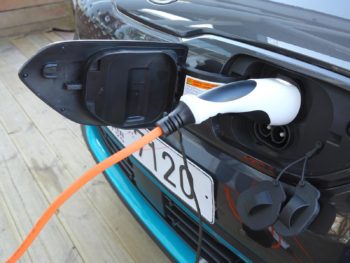New data shows low uptake for EVs in lower-income EU countries
New data from the European Automobile Manufacturers’ Association (ACEA) highlights the correlation between the affordability of electric cars and their market uptake.

Only 93 electric cars were sold in 2018 in Latvia, while Poland has the lowest uptake of electric cars in the EU, with a market share of just 0.2%.
The analysis found that all countries with an electrically-chargeable vehicle market share less than 1% – that is half of all EU member states – have a GDP per capita below €29,000.
This is the case in several southern countries – such as Spain, Italy and Greece – as well as in Central and Eastern European countries, like Lithuania, Bulgaria and Slovakia.
In Latvia, for instance, only 93 electric cars were sold last year. Poland has the lowest uptake of electric cars in the EU, with an ECV market share of just 0.2%. By contrast, an ECV share of above 3.5% only occurs in countries with a GDP of more than €42,000, like Finland, the Netherlands and Sweden.
The analysis compared national data on the sales of electrically-chargeable vehicles with GDP per capita in the EU member states for the full-year 2018.
“Besides investing in charging infrastructure, governments across the EU need to put in place meaningful and sustainable incentives in order to encourage more consumers to make the switch to electric,” explained ACEA secretary general, Erik Jonnaert.
“People throughout the EU should be able to consider purchasing an electric vehicle – no matter which country they live in – north or south, east or west. The affordability of the latest low- and zero-emission technologies needs to be addressed by governments as a matter of priority.”
Although fiscal measures to stimulate electric car sales are available in nearly all EU states, the nature and monetary value of these benefits varies widely says ACEA. Most countries grant tax reductions or exemptions for electric cars, but only 12 EU member states offer premiums or bonus payments to buyers of these vehicles.

